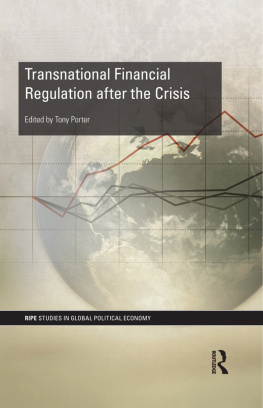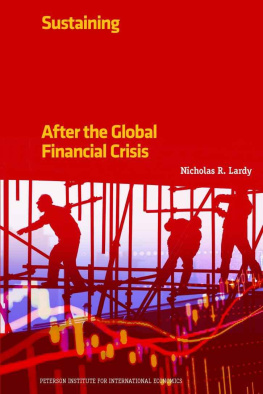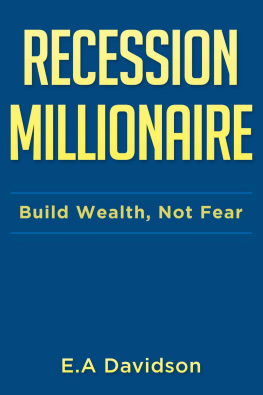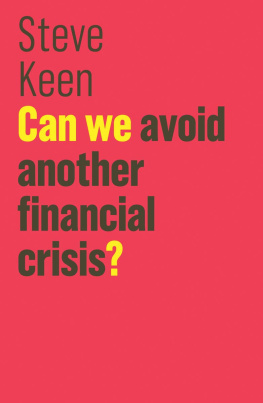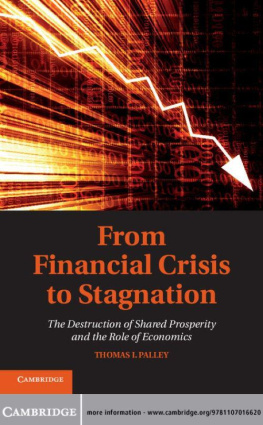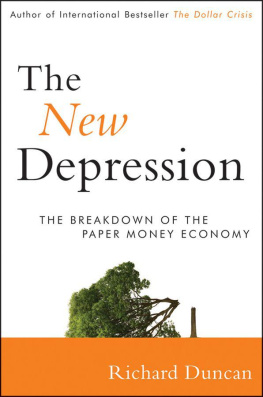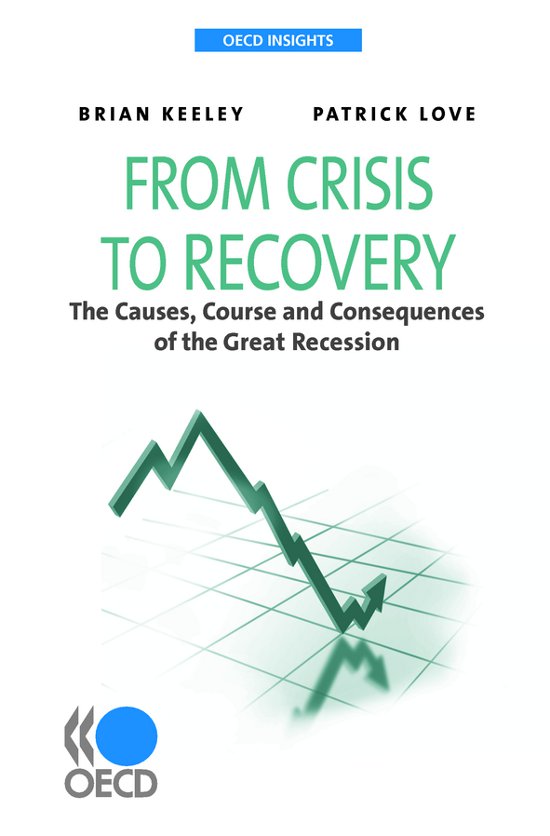Foreword
The current global economic crisis was triggered by a financial crisis caused by ever-increasing thirst for short-term profit. In addition, against a background of government support for the expansion of financial markets, many people turned a blind eye to basic issues of business ethics and regulation. We now need to rewrite the rules of finance and global business. To restore the trust that is fundamental to functioning markets, we need better regulation, better supervision, better corporate governance and better co-ordination.
We also need fairer social policies and an end to the bottlenecks that block competition and innovation and hamper sustainable growth. We must also find the most productive ways for governments to exit from their massive emergency interventions once the world economy is firmly back on a growth path.
Dealing with fiscal deficits and unemployment while encouraging new sources of growth will absorb policy makers attention in the near term, but lifting our collective sights to focus on wider issues, such as the environment and development, is a challenge we must also meet.
How can we move from recession to recovery? The OECDs strategic response involves strengthening corporate governance and doing more to combat the dark sides of globalisation, such as corruption and tax evasion.
As well as correcting the mistakes of the past, we have to prepare the future. We are elaborating a Green Growth Strategy to guide national and international policies so that all countries can realise the potential of this new approach to growth. Our analysis shows a need for governments to take a stronger lead in fostering greener production, procurement and consumption patterns by devising clearer frameworks and ensuring that markets work properly. They should drop some costly habits too, notably subsidising fossil fuels, which would help fight climate change and save money as well.
We also need new thinking in other areas, from competition, investment and pensions policies to tackling education, health care, social exclusion and poverty. We need to raise productivity while keeping trade and investment frontiers open. We must find ways to spread opportunity and the fruits of future growth more evenly and encourage the scientific, technical and organisational innovation needed for a green recovery.
This latest Insights book draws on the OECDs analyses of why the financial crisis occurred and how it spread so rapidly into the real economy. It calls on the Organisations extensive expertise in the analysis of economic growth, employment policy, financial markets and the other domains affected by the crisis and crucial to the recovery.
I trust you will find it useful in understanding the origins of our present situation and in judging the responses to it.
Angel Gurra
Secretary-General of the OECD
Acknowledgements
The authors very gratefully acknowledge the advice and assistance of Pablo Antolin, Andrew Auerbach, Tim Besley, Sveinbjrn Blndal, Adrian Blundell-Wignall, Rory Clarke, Emmanuel Dalmenesche, Jean-Christophe Dumont, Carolyn Ervin, Alessandro Goglio, Johannes Jtting, Katherine Kraig-Ernandes, Andrew Mold, Lynn Robertson, Stfanie Payet, Glenda Quintini, Jean-Marc Salou, Stefano Scarpetta, Paul Swaim, David Turner, Jane Voros, Gert Wehinger, Juan Yermo and William R. White.
Currency Note
Currency references are in US dollars unless otherwise indicated.
1. Introduction
The financial crisis of late 200 was the spark for the most serious economic slowdown since World War II. The Great Recession, as some have called it, will continue to overshadow economies for years to come through legacies such as unemployment and public debt. |
By way of introduction
Sometime in the early 2000s, Clarence Nathan took out a loan. He wasnt in full-time employment but held down three part-time jobs, none of them very secure, and earned about $45 000 a year. Even Mr. Nathan was surprised anyone would give him a loan against his house, especially a sum like $540 000.
I wouldnt have loaned me the money, he later told National Public Radio in the United States. And nobody that I know would have loaned me the money. I know guys who are criminals who wouldnt loan me that and they break your knee-caps. I dont know why the bank did it. Im serious $540 000 to a person with bad credit.
Why did the bank do it? On the face of it, the banks decision made no sense. Indeed, if Mr. Nathan had applied for such a loan ten years earlier, he wouldnt have got it. But in the intervening period, a couple of things changed. The first was that borrowing in the United States and other countries became, and stayed, relatively cheap, buoyed by vast inflows from emerging economies like China. In essence, there was a huge pool of money just waiting to be lent.
The other thing that changed was the banks themselves. They became ever more eager to take big risks, in the expectation of making big returns. Except, as far as the banks were concerned, they werent really taking risks. Thanks to clever financial innovations, they were able to slice and dice loans such as Mr. Nathans into so many tiny parts that even if he defaulted (which he did) the loss would be spread out so widely that no one would really feel it. Better still for the bank, it would have sold off the loan to someone else long before Mr. Nathan experienced any problems. And if he couldnt meet his debts, he could always sell his house at a profit after all, there had been no nationwide decline in house prices in the United States since the 190s.
For a time, it seemed, risk had become so well managed that it just wasnt as, well, risky as it used to be. It made sense both to lend and to borrow, and so pretty much everyone did. In 2005, homeowners in the US borrowed $750 billion against the value of their homes about seven times more than a decade earlier. After all, what could go wrong .
Pop!
By this stage, you either know or have guessed the answer: the bubble burst. Not for the first time, irrational exuberance banged up against hard reality, and hard reality won. It usually does.
The resulting financial carnage was exemplified by the collapse of Lehman Brothers in September 200, even though the crisis had been brewing for a long time before then. What started as a financial crisis quickly made its way into the real economy, triggering an unprecedented collapse in world trade, widespread job losses and the first contraction in the global economy since the Second World War. No wonder some people called it the Great Recession.
This book is about that crisis, the subsequent downturn and the prospects for strong recovery. It examines the roots of the crisis, how it spread into the real economy, and the ways in which the aftershocks of the Great Recession will continue to be felt for years to come.
The recession and its legacies
Economic memories are often short, which is one reason, perhaps, why financial crises and bubbles tend to recur with such frequency. Spotting the factors in advance that may be leading up to such events is not easy (if it were, they wouldnt occur). But at bottom, one mistaken notion tends to crop up repeatedly: a sense that, for some reason or other, the old rules of economies and financial markets no longer apply. Sometimes the rules do indeed change, but as often as not they do not. As the noted investor and businessman Sir John Templeton once remarked, The four most dangerous words in investing are, this time its different.


